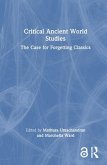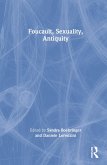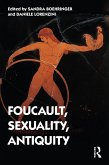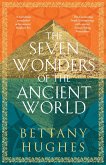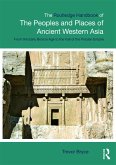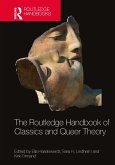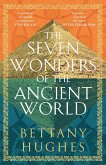This volume explores and elucidates critical ancient world studies (CAWS), a new model for the study of the ancient world operating critically, setting itself against a long history of a discipline formulated to naturalise a hierarchical, white supremacist origin story for an imagined modern West.
CAWS is a methodology for the study of antiquity that shifts away from the assumptions and approaches of the discipline known as classical studies and/or classics. Although it seeks to reckon with the discipline's colonial history, it is not simply the application of decolonial theory or the search to uncover subaltern narratives in a subject that has special relevance to the privileged and powerful. Rather, it dismantles the structures of knowledge that have led to this privileging, and questions the categories, ideas, themes, narratives, and epistemological structures that have been deemed objective and essential within the inherited discipline of classics. The contributions in this book, by an international group of researchers, offer a variety of situated, embodied perspectives on the question of how to imagine a more critical discipline, rather than a unified single view. The volume is divided into four parts - "Critical Epistemologies", "Critical Philologies", "Critical Time and Critical Space", and "Critical Approaches" - and uses these as spaces to propose disciplinary transformation.
Critical Ancient World Studies: The Case for Forgetting Classics is a must-read for scholars and practitioners teaching in the field of classical studies, and the breadth of examples also makes it an invaluable resource for anyone working on the ancient world, or on confronting Eurocentrism, within other disciplines.
The Open Access version of this book, available at http://www.taylorfrancis.com, has been made available under a Creative Commons Attribution (CC-BY) 4.0 license.
CAWS is a methodology for the study of antiquity that shifts away from the assumptions and approaches of the discipline known as classical studies and/or classics. Although it seeks to reckon with the discipline's colonial history, it is not simply the application of decolonial theory or the search to uncover subaltern narratives in a subject that has special relevance to the privileged and powerful. Rather, it dismantles the structures of knowledge that have led to this privileging, and questions the categories, ideas, themes, narratives, and epistemological structures that have been deemed objective and essential within the inherited discipline of classics. The contributions in this book, by an international group of researchers, offer a variety of situated, embodied perspectives on the question of how to imagine a more critical discipline, rather than a unified single view. The volume is divided into four parts - "Critical Epistemologies", "Critical Philologies", "Critical Time and Critical Space", and "Critical Approaches" - and uses these as spaces to propose disciplinary transformation.
Critical Ancient World Studies: The Case for Forgetting Classics is a must-read for scholars and practitioners teaching in the field of classical studies, and the breadth of examples also makes it an invaluable resource for anyone working on the ancient world, or on confronting Eurocentrism, within other disciplines.
The Open Access version of this book, available at http://www.taylorfrancis.com, has been made available under a Creative Commons Attribution (CC-BY) 4.0 license.
"In its collectivity and variety, its effortful interdisciplinarity, and its self-annotating, self-critical practice, this exciting collection of papers represents part of a wider sea change occurring across ancient world studies. The contributions to the volume are refreshingly direct, clearly written, and, as an open access publication, available to anyone interested in its approaches. Critical Ancient World Studies is a generative, thought-provoking text. Iterative application of the critical mechanism at its core will guarantee even more field-expanding work in the years to come." - Bryn Mawr Classical Review


